Table of Contents Show
There are certain things one must do when considering the RV lifestyle. Things like determining financing for an RV, finding the proper insurance, or maybe even learning how to drive an RV
While all those are necessary steps to take, you must first learn the RV lingo before you can truly consider yourself an RVer.
RVers Have Their Own Language: RV Lingo You Need to Know
It’s not uncommon for new RVers to hear more experienced adventurers discussing details of the trade. It might sound like they’re speaking another language! As you research the RV universe, you’ll spot abbreviations, technical terms, and more slang that might be over your head at this point.
Take it from one RVer to another: Getting into the RV lingo at first can be rough! So we wanted to provide you a useful dictionary of standard terms and phrases you’ll hear around the water cooler. Or rather the gas pump, campgrounds, or anywhere else you find RVers congregating.
From types of RVs to RV features to RV camping and lifestyle terms, here’s what you should know to decode much of the typical RV lingo.
Types of RV Terms to Know
Imagine walking into an RV sales company not knowing any RV lingo. It’ll feel like the salesperson is speaking a different language. In a way, she is.
Don’t worry. After reviewing a few RV terms, you can at least pretend you know what’s going on. Here’s where you can start.
RV: Stands for Recreational Vehicle. Any complete vehicle or trailer with many of the amenities of a house.
Rig: Another term for RV, coach, trailer, Class A, B, C, etc.
Class A / Motorhome / Coach: Some of the largest and most luxurious RVs in the industry. They’re built on a commercial bus or truck chassis and range in size from 26 to 45 feet in length. Many people might consider them tour buses.
Motorhome: Generally, it’s a motorized vehicle with similar items to a house but is all contained within the RV.
Coach: Can be considered any RV, but generally, when people use the term coach, they mean a Class A.
Class B: Similar to a van, but maybe a bit larger. It has many of the amenities most larger RVs have in a more compact package.
Class B+: A hybrid between a Class B and a Class C motorhome.
Class C: May called a mini motorhome. They offer a more compact version of a larger Class A motorhome. They have a cab, and the chassis is generally a van or truck base.
Travel Trailer / TT: A camper pulled behind a truck or other vehicle.
Fifth Wheel / Fiver / 5er: A trailer that you tow; however, you use the “U” shaped coupling component found in the bed of the towing vehicle rather than a hitch. It’s a similar towing operating to a truck or semi.
Truck Camper / Slide-In Camper: A full camper that sits in the bed of a truck.
Pop-Up Camper: A camper that’s usually towed and can be collapsed for easy storage and towing. When opened, the living quarters “pop” out into a tent-like structure with a trailer base and roof, giving the user increased space. It’s generally made of heavy-duty cloth.
Gasser: A motorhome running on gasoline, not diesel.
Diesel Pusher: A diesel-powered motorhome with an engine in the back. Most people think of a diesel pusher as a Class A.
Park Model / Destination Trailer: A trailer designed for permanent parking. It has all the amenities of a mobile home but is generally shorter in length.
Bumper Pull: The act of towing a trailer or pop-up using a ball and hitch you attach to the back end of the towing vehicle.
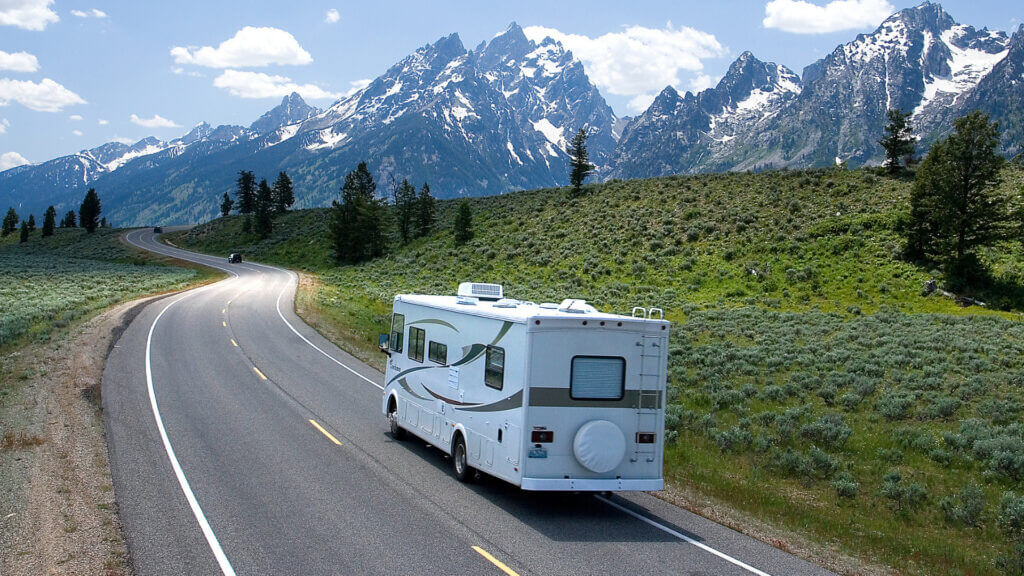
RV Features and Necessities Slang Terms
There are specific slang terms you’ll want to understand. For some reason, RVers love to talk about their tanks, hookups, rooms, etc. And no, they’re not referring to going on a date for a hookup while contemplating what room they’ll spend time in later.
If you’re talking RV lingo, decoding slang is a must. Imagine your embarrassment if you thought another RVer asking about a hookup was asking you out!
But then, if things worked out between the two of you, that would be quite the RV hookup story!
Chassis: The frame or underbelly structure of a wheeled vehicle.
Cockpit: The front of the RV where the driver and passengers sit.
Cabin: The RV’s living space.
Basement: The large storage areas under a rig. It’s commonly referring to a Class A’s underbelly.
Holding Tanks: Space where you store water. It’s usually mounted under an RV. It can refer to freshwater, black water, or gray water.
Slide Outs / Slide Rooms / Pop-Outs: Extra living space you can access inside a camper when parked. You can slide it out via a power button or manual crank.
Black Water: Any wastewater/sewage from the toilet.
Gray Water: Any wastewater from the sinks or shower.
Fresh Water: Potable water meant for human consumption.
City Water: Generally, this refers to the water pipe you’ll hook your RV to in a campground with hookups.
Shore Power: Electricity from an external source, like when you plug in your RV at an RV park.
Full Hookups: Includes shore power, city water, and sewer dump directly at the campsite.
Blue Boy or Honey Bucket: A portable wastewater tank you can use to empty tanks when there’s no sewage directly at the campsite.
Cassette Toilet: A toilet with a small holding tank that can be taken out of the RV and emptied at a public restroom, such as a rest stop.
Composting Toilet: A toilet that doesn’t use water but it separates the liquids from the solids. You can dump the liquids at a rest stop while the solids get mixed with an organic material that eventually decomposes and dries out. You can empty them into any trash container.
Bunkhouse: A sleeping area in an RV with bunk beds.
Dogbone or Pigtail: An adaptor cord explicitly made for RVs. One example is a 50 amp to 30 amp adaptor cord, making it possible for an RV with a 30 amp electrical system to plug into a 50 amp outlet safely.
Landing Gear or Leveling Jacks: Supports for your trailer you’ll place under an RV to make it level on uneven surfaces. You can place them manually or use automatic retractable gears to set them down and level the rig.
Leveling Blocks: Plastic or wooden squares you put under your wheels to level out an RV on an uneven surface.
Chocks: Wedges of material placed against wheels to prevent unwanted or accidental movement.
Wet Bath: Compact bathroom usually used in Class Bs where the shower is also the bathroom itself. In other words, the toilet and washbasin sit inside the shower.
Galley: The kitchen area of an RV.
LP Tank: Propane tank. LP stands for liquefied petroleum, but you’ll never hear it called that. RVers will call it a propane tank, LP, LPG, or LP-gas.
Sway Bars: A tool that helps stabilize an RV by distributing the weight more evenly. You’ll find some in a motorhome’s chassis. You can add others while towing to prevent unwanted movement on the road.
Surge Protector: An appliance or device that protects electrical devices from voltage spikes.
Tow Dolly: A small two-wheel trailer used to tow a vehicle behind a rig. You drive the front two wheels of a car onto the dolly, and the back two wheels roll along behind.
Dump Station: The site where you can dump black and gray tanks. Some also have potable water available to fill up freshwater tanks.
Stinky Slinky: The RV drain hose connects the tanks to the dumpsite.
Toad: Refers to the vehicle you tow behind the rig.
RV Lifestyle and Camping Slang Terms
There are so many places to camp and so many ways to do so. Everyone has a different style they live by, and their use of RV lingo can make finding a place to stay quite complicated. Once you know the language, finding the camping spots is easy.
Boondocking: Remote or dry camping, meaning there are no hookups.
Wally Docking: Parking overnight at a Walmart.
Lot Docking: Legally parking overnight in a parking lot such as a Cracker Barrel.
Dry Camping: Camping without any hookups.
Wild Camping: Remote camping in an unestablished campsite.
Full Hookups: Camping with all the hookups: electric, water, and sewage directly at the campsite.
Partial Hookups: Camping with most, but not all hookups, usually meaning electric and water.
Primitive Camping: Camping without any amenities. It could be remote, boondocking, wild, or dispersed.
Improved Campsite: Camping at an established campground but probably without hookups, often at a state or county park.
Self-Contained: The RV has everything one needs to stay overnight, including a toilet.
Dispersed Camping: Camping without hookups in an unestablished campground, usually on public lands and often on Bureau of Land Management Lands.
Back-In: Sites that require you to back your rig in. Smaller rigs often use them.
Pull-Through: Sites where you can pull the rig in and out of the site without backing up. Larger rigs prefer these sites.
Camp Side: Often called curbside, this term refers to the RV side that faces the campsite or curb. Usually, it’s the passenger side of a rig.
Street Side: This is the rig’s side facing the road. In layman’s terms, it’s the driver’s side of the rig.
Caravan: A group of RVers traveling together from one destination to another.
Full-Timers: People who live in their RV full-time. Some have sold their houses and quit their office jobs to roam the road. Others live in an RV parked permanently at a campsite to maintain a stationary lifestyle with the option to travel and reduce living costs.
Part-Timers: People who live in their RV part-time. They keep their houses and might spend summers, holidays, and other extended periods traveling in their RVs.
Weekend Warriors: RV owners who travel and camp on the weekends.
Snowbirds/Snowbirding: People who travel to and live in warmer climates during the winter.
The Big Tent Show: The Quartzsite Sports Vacation and RV show held annually in Quartzsite, Arizona
Quartzsite: A popular gathering place in Arizona for full-time RVers. There are many rallies here throughout the year.
Rally: An organized get-together of like-minded folks where they can share information, eat, drink, and companionship.
Skoolie: A school bus converted to be a mobile home with many amenities similar to an RV.
Sticks and Bricks / S&B: A traditional stationary home.
Stationary Life: People who live without traveling frequently.
Workamping: When RVers work at a campground for a season. They might manage, do maintenance, pick up trash, or handle other campground responsibilities. Most will get a free campsite for the season, and some will get paid on top of that.
Camp Host: Usually, this refers to a couple that takes care of a campground for a season in exchange for a covered campsite and/or modest pay.
Digital Nomad: A person working remotely while living a traveling lifestyle.
Stealth Camping: Parking on a street or BLM land and sleeping overnight without anyone knowing.
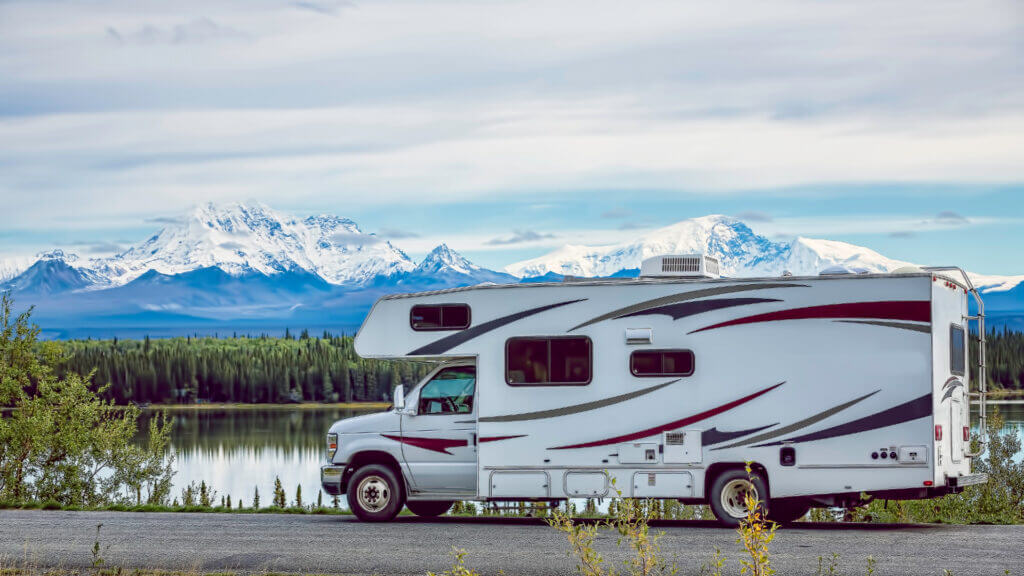
RV Lingo Creates Understanding in the RV World
RV lingo is almost like learning another language. But once you know it, negotiating this lifestyle becomes quite simple. You’ll sound like an expert in no time flat–all your RV conversations will flow smoothly, and everyone will understand what you mean.
Now, if only it were this simple to decode all communication forms!




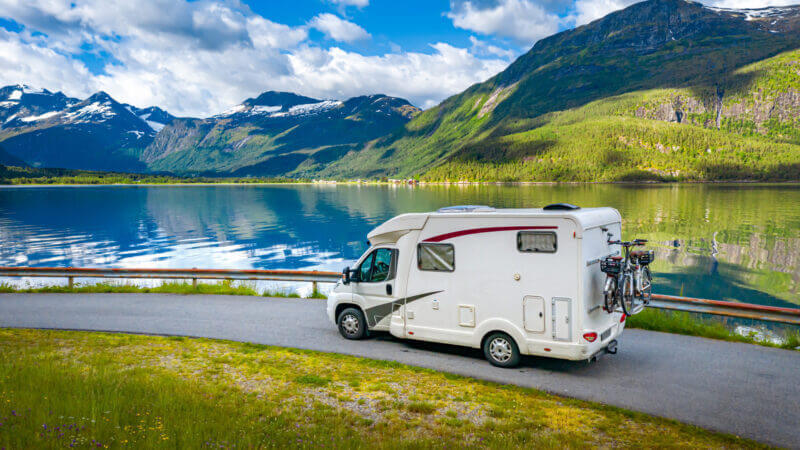
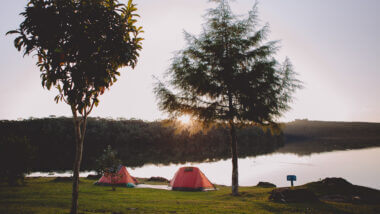
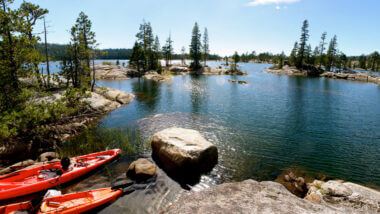
Hi Jason, I read your article completely. I am looking for such an explained article for a long time. How long have you been camping? I gain a lot of knowledge related to camping. Keep sharing such kind of info.
I go along with most of your definitions. But, as a tower, not a motor homer, “sway bar” has a somewhat different meaning. A weight distribution hitch has “spring bars” (usually two) which act to lift (or bend) the connection between trailer and tow vehicle up in a way that transfers some to the hitch weight to the front axle of the tow vehicle. It may also incorporate a “sway bar” (usually only one) that attaches to a small ball to the side of the main hitch ball and slides through an adjustable friction device on the side of the trailer tongue. This reduces the tendency of the trailer to swing back and forth (fishtail) under certain conditions of speed, road conditions and wind effects.
Well explained. They should correct that definition.
Workcamping also includes living in your RV while working at a tourist attraction (Wall Drug, SD) or a national park. My wife and I do not clean toilets. We work in the gift shop at Mt. Rushmore.
Hey! You forgot the Super C type RV. We have had one for four years now and still explaining!
LOL
You could add Garage which is the name for a storage compartment for maintenance and hookup equipment accessed from the outside of a travel trailer
Glamping: Camping using shelter such as an RV or travel trailer usually with electricity and water self contained or hooked up.